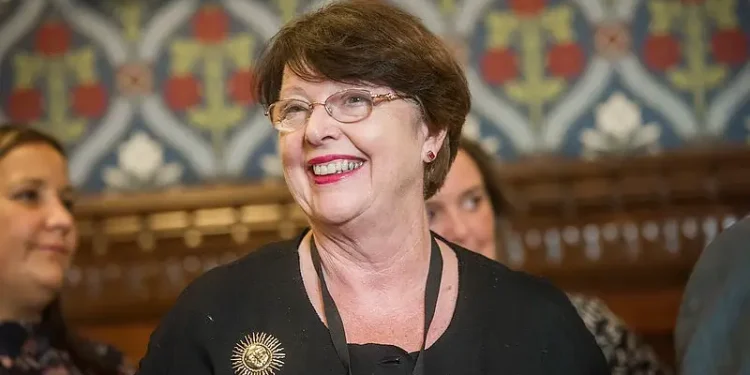Baroness Glenys Thornton has been appointed as the Labour member of the independent Advisory Committee on Business Appointments (ACOBA). This appointment comes at a time when scrutiny of post-governmental careers is increasingly in the public eye.
A Storied Career Meets a Crucial Role
Baroness Thornton’s appointment to ACOBA is far from a routine shuffling of political chairs.
With over three decades of experience spanning the voluntary, co-operative, and private sectors, she brings a wealth of knowledge to a committee tasked with advising on the delicate transition from public office to private enterprise.
Highlights of Baroness Thornton’s career:
- General Secretary of the Fabian Society
- Trustee for high-profile charities including Action for Children
- Government Whip and Health Minister (2008-2010)
- Chief Executive of The Young Foundation (2015-2017)
The ACOBA Balancing Act
ACOBA plays a crucial role in maintaining public trust in government. The committee provides independent advice on applications submitted under the Business Appointment Rules, affecting:
- Senior civil servants
- Other Crown servants
- Former Ministers seeking new roles within two years of leaving office
“The committee’s work is essential in ensuring transparency and integrity in the movement between public service and private sector roles,”
noted a spokesperson for the Cabinet Office.
Cross-Party Composition and Independence
ACOBA’s structure reflects a commitment to political balance and independence:
- Majority independent membership
- Three members nominated by each major political party
- Chair and independent members appointed through open competition
Baroness Thornton replaces Baroness Maggie Jones, who resigned upon her appointment as a Minister in the Department for Science, Innovation and Technology and the Department for Business and Trade.
Challenges and Opportunities Ahead
As ACOBA navigates the complex landscape of post-governmental appointments, Baroness Thornton’s diverse background may prove invaluable. Her experience in social enterprise and the voluntary sector could bring fresh perspectives to the committee’s deliberations.
However, the role is not without its challenges. ACOBA has faced criticism in the past for perceived toothlessness in enforcing its recommendations. As public scrutiny of the “revolving door” between government and industry intensifies, the pressure on ACOBA to demonstrate its effectiveness is likely to grow.
Next Steps
Baroness Thornton begins her five-year term immediately. While ACOBA does not set policy, its advice can significantly influence the career paths of former government officials.
For more information on ACOBA’s work and to view its published advice letters, visit the official ACOBA website at [insert URL].
Sources: THX News, House of Lords Library, Wikipedia & Advisory Committee on Business Appointments.








